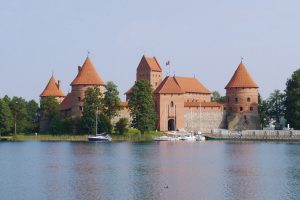Iowa Racing and Gaming Commission meets to discuss impacts of Linn County Casino

The Iowa Racing & Gaming Commission is set to meet today to discuss the findings of studies into social and economic impact of a casino in Linn County.
US.- After around 55 per cent of voters in Linn County, Iowa, said yes to a casino in Cedar Rapids in November, the Iowa Racing & Gaming Commission is set to meet to discuss the findings of independent studies into the social and economic impact of a casino in the area.
The studies that are being discussed today are from The Spectrum and The Innovation Group.
The Spectrum study says that the Cedar Rapids area is well served by casinos in surrounding areas. The word “cannibalism” appears repeatedly in the study in terms of eating the profits of other gaming facilities. This is what the state gaming commission cited as the reason for denying Linn County a license to open a casino in both 2014 and 2017.
The Innovation Group study shows existing casinos would lose an estimated $61m a year, but the state would gain an estimated $51m in tax revenue.
Cedar Rapids Mayor Tiffany O’Donnell, said these new studies are favourable for the Linn County Casino Efforts in comparison to 2014 and 2017.
According to KCRG, O’Donnell said: “There are some significant changes in the environment and the landscape as it relates to a new casino, and very much in our favour.
“In terms of how many people, for example, we have 40,000 more people here in Lyndon Johnson counties than we had before. According to these studies, we have an opportunity to bring in $51m in new revenue to the state.”
Casinos in Waterloo and Riverside are the two casinos named by Spectrum that would be hardest hit by a Cedar Rapids casino.
Brian Ohorilko, Administrator of the Iowa Racing & Gaming Commission, said: “We have one study that did seem to opine on an impact of Riverside and Waterloo. It does appear that may be less than some of the previous studies.”
“It’s time for competition. It’s hard to make a case against it when you’re seeing the success in the record profits that the existing casinos have raked in over the last four and five years,” Mayor O’Donnell added.
Right now, Linn County has no concrete proposal for a casino, such as the location, and IRGC says this makes it hard to know the true impacts of a casino.
“Those estimates that were provided are based on just generalisations and not specific applications or with information regarding the number of slot machines, number of table games, location, and additional amenities,” said Ohorilko.
Attempts to bring a casino to Cedar Rapids failed in 2014 and 2017. On both occasions, the Iowa Racing and Gaming Commission said a casino would take away from other nearby casinos — there are 19 licensed casinos in Iowa.
The ballot
Voters in Linn County, Iowa, have again voted yes to a casino in Cedar Rapids in November 2021. About 55 per cent of voters approved the development. However, the vote only approves the concept and doesn’t mean a casino will be built.
Approval of a specific facility still needs to come after application to the Iowa Racing and Gaming Commission. The application will include plans for what a casino would look like and how it would benefit the community, but one of the first steps will be to figure out exactly where a casino would go.
Anne Parmley, president of the Linn County Gaming Association, said about the location: “Different locations bring about different sizes and different levels of opportunity. And so I think every location that might be available will be looked at and considered. There’s a strong desire to be in downtown Cedar Rapids.”
Parmley also stated: “Having the revenues that would be generated by this casino at their disposal to support operations, give them the opportunity to serve more citizens, the needs are expanding.”
Drew Skogman, a member of Cedar Rapids Development Group, said: “Voting yes on this referendum is about Linn County’s future.
“Linn County is the largest county in Iowa without a gaming facility, and it’s time for us to receive the same economic stimulus that casinos bring to other counties in the state.”
Is expected that Peninsula Pacific Entertainment will operate the casino. The company has granted the Linn County Gaming Association 8 per cent of net revenue, over double the 3 per cent required by the state.











